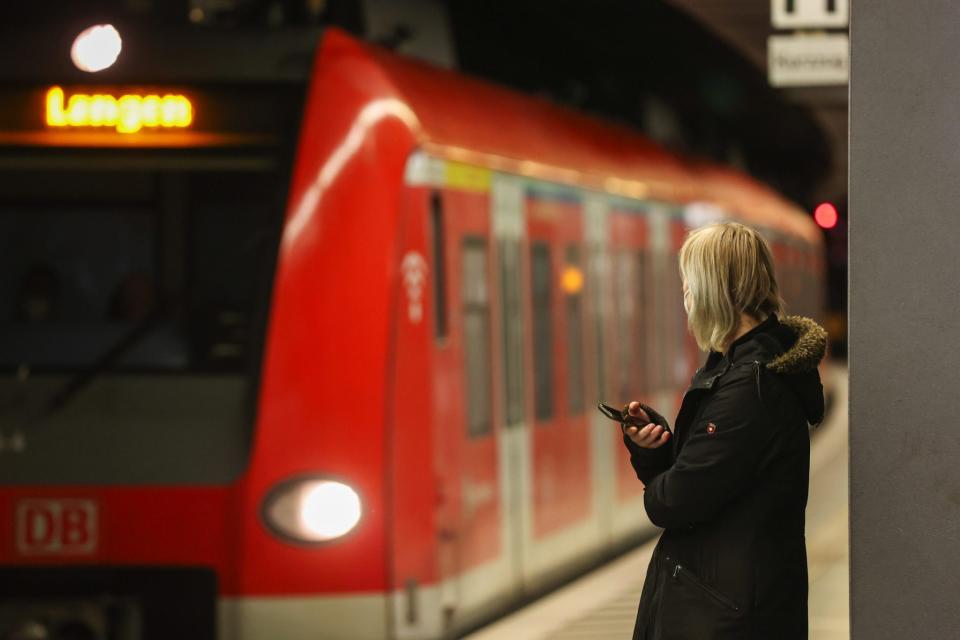The German railway system has become a ‘national embarrassment’ amid Euro 2024—and there seems to be no light at the end of the tunnel

Being punctual is considered synonymous with being German. Yet Germany’s connective tissue—its national railway system, Deutsche Bahn (DB)—struggles with it.
The country of 84 million has been on football lovers’ radars this summer thanks to the Euro 2024 championship, which sold about 2.7 million tickets across 10 German cities.
What could’ve been an opportunity to show off the best of summer tourism for Germany turned into a logistical nightmare—and the railways are right at the heart of it. Visitors coming to watch football matches, drink beer, and enjoy Bavarian food have been met with incessant delays from the train network that is supposed to connect different parts of the country.
Fans have lambasted the infrequent trains for ruining their Euros experience. For some longtime enthusiasts, the delays have conjured fond memories of when Germany last played host 18 years ago—at a time when its trains still ran smoothly. Others involved in the Euros, such as Netherlands coach Ronald Koeman, criticized the railway system and the host country for not doing a good enough job managing the games.
The train schedules have fallen off the wagon so much that a board member of DB had to apologize to Euro fans for not offering “the quality that everyone deserves,” according to local newspaper Bild.
"Our rail network is very busy, especially during EURO, when DB's entire fleet will be up and running," a DB spokesperson told Fortune, adding that 6 million passengers have traveled on its trains since the championship began.
The railway disarray adds to a string of other events that have thrown the Euros—and Germany itself—into chaos. Earlier this week, UEFA, one of the championship’s organizers, fined Germany for not doing enough to deter fans from invading football pitches during the tournament to take selfies with players.
“With all this travel chaos, the railways have become a national embarrassment,” Ulrich Lange, transport spokesman for the opposition Christian Democrats, told the Financial Times.
The train wreck of a railway system
DB’s shortfall has felt especially stark, given that it is one of the Euro 2024 sponsors and is crucial to the tournament's smooth running. The national railway group also planned to make this year a more sustainable effort by offering discounted prices for fans traveling with climate-friendly tickets.
But it wouldn’t be much different from a month before the Euros kicked off when staggeringly just 63% of DB’s trains reached their destinations on time, the New York Times reported. In November, DB reported its worst punctuality figures (52%) in about a decade across all train journeys.
The Euros may have shed light on the railway system crippling Germany, but its problems have persisted—and been exacerbated—for years. Chronic underinvestment combined with a surge in demand for rail services has put DB under immense pressure to up its game.
For its part, DB announced cost-cutting efforts earlier this year amid staff strikes to eliminate unprofitable routes, slash its debt pile, and pump more money into upgrading its infrastructure.
The German government announced plans to overhaul the train network by 2030, which could eventually address some of DB's roadblocks. But in the lead-up, there could still be severe disruptions to public transport (and to German punctuality). Some of Germany’s busiest lines could be closed while repair work is underway, pointing to more trouble ahead. But DB has tried to keep its constructions on the down-low for the period of the Euros.
"During the 2024 European Football Championship, Deutsche Bahn is keeping construction work on its nationwide infrastructure and the S-Bahn networks in major cities to a minimum to enable fans and teams to travel to the matches and fan zones by train," DB's spokesperson said.
DB has many obstacles to clear to get back on track. While it might still take years to fix fully, a well-functioning national railway system is in everyone’s interest.
Update, July 3, 2024: This article has been updated with a comment from Deutsche Bahn.
This story was originally featured on Fortune.com

 Yahoo Finance
Yahoo Finance 